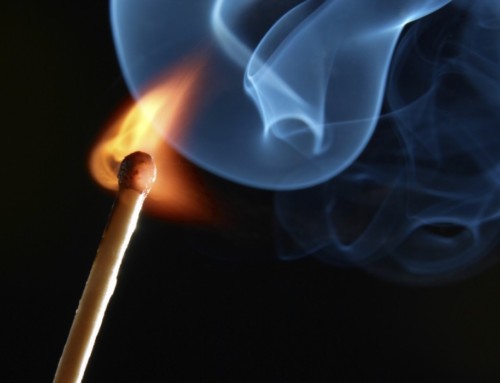In the shadows of the Kremlin, a modern saga unfolds, veined with the venality of power and the valor of its victims. This is Alexei Navalny’s story, a Russian politico whose audacity sought to shake the dust off democracy’s banners in a land besieged by autocracy. His life exposed the iron grip of tyranny, but his death, at the hands of those he dared defy, will become the irrefutable testament of a desolate destiny for Russia.
Navalny was no ordinary dissident; his allure lay not just in his defiance but in his diligence. A brilliant mind churning through the murky waters of Russian corruption, he unearthed scandals and steeled his will against the swells of intimidation. The compassion he showed for his people was evident in his work, in the battles waged and the stories retold through many mediums, each more damning than the last. His rise within the political arena wasn’t a mere ascension; it was a gathering storm heralding the promise of change.
He wasn’t just the harbinger, but a beacon of hope for a generation marred by the somber truth that their voices barely echo against the walls of power. Navalny represented the sentiment of many, magnified, and set upon the grand stage of international attention. It wasn’t just Russians that looked up to him; the world watched, witnessed, and held their breath alongside him, as if his dreams for justice were dreams of humanity.
The grim irony of Navalny’s fate is not lost to the sardonic jest of history; a man who dreamed of democracy was murdered.
In what reads like a harrowing political thriller, Navalny’s story took an almost lethal turn when he survived an assassination attempt by poisoning, widely believed to be the work of Putin’s enforcers. Miraculously pulling through this life-threatening ordeal, he showcased an almost unimaginable resilience and dedication to his cause. In defiance of the great risks, he returned to Russia, to the land and the people he cherished, knowing well the personal cost of his rebellion. His homecoming was met not with the laurels due to a hero but with the cold shackles of imprisonment. Yet, within the confines of a prison cell, Navalny’s humor and unyielding spirit continued to resonate, captivating and inspiring not only his fellow Russians but a global audience, sparking movements of solidarity and further unsettling the powers that be. His untimely death is a somber chapter in his saga, but it speaks volumes of his unwavering commitment and the indomitable force of his personality that fueled others to carry the torch of activism onwards.
Alexei Navalny’s assailants, cowardly and clandestine, sought to silence the voice that roused a nation to suspicion, to spotlight the dark deeds of its leaders. And yet, in their terror lie their greatest folly for martyring Navalny will not silence the message; it amplified it.
The moment a state targets its citizens for speaking the truth, its sanctity crumbles, and its soul withers. The Kremlin’s hand, stained with the Novichok of betrayal, signposts the journey that Russia has taken, one etched in fear, fed by lies, and forgetful of liberty. Navalny’s death triggers a narrative older than Rus itself; of corruption and conflict, of rule and ruin, one in which the people are destined always to yearn for freedom, never to fully grasp it.
We are left in the wake of this tragedy pondering the following: what becomes of a nation that loses the fire that fought for its future? What legacy remains for a man whose quests met a brutal end before their fulfillment? Navalny’s spirit will linger, a haunting reproach to the powers that wield the darkness. His vision of a Russia unchained from corruption and oppression, though dimmed, is not extinguished.
The global community stands to ask not only what Putin’s regime has taken from Russia but what they must give in return. The outpouring of grief and anger need not be the final verses of this elegy; they must inspire actions that pave the path for a Russia reborn. A champion has fallen, but his cause lives on in those brave enough to carry the torch, however heavy with the burden of injustice.
Upon the shards of a day that shattered the illusions of a silent society, we are each presented with a call to action. We, whose voices may be independent and strong, must now echo the cries of those within Russia’s tumults of change. We must be the rallying war cry of a generation that refuses to accept its role as bystanders to tyranny.
This call is not steeped in the partisan politics of left or right but in the fundamental stand for human dignity. As the dusk sets on Navalny’s life, the dawn must break on a world united in the staunch defense of democracy. The path ahead will be fraught, the challenges are many, but the cause remains just and the need unambiguous.
We shall dial our representatives, picket the peculiar palaces of power, and use the sharpness of our speech to carve out a future where Putin’s might is matched by the vast will of a nation unshackled. Each act, no matter how small, lights another candle in a Russia that refuses to be submerged in the shadows.
Navalny’s narrative is a clarion call for the resurrection of Russia, not under the cathedral bells of old glories but the defiant peals that ask of its people to wrestle the reins of their own destinies. Until such time, we must speak his name, carry his memory, and continue the legacy he dreamed for Russia.
As the world and its citizens weigh the heavy heart of injustice, we must rise above the despair to elucidate a new chapter. A chapter where Navalny’s life becomes emblematic of Russian renaissance and Putin’s tactics are not indulged but, instead, indicted.
Surely, we must stand, resolute and unyielding, against the tempests that wish to consign Navalny’s message to mere memory. Our shared obligations are clear: we must stand by Russia’s silenced, embolden its embattled and work towards a world where men of conscience are not condemned but celebrated. It is a future worth fighting for, and for Alexei Navalny, our fight continues, now and forever.







Share Your Thoughts?